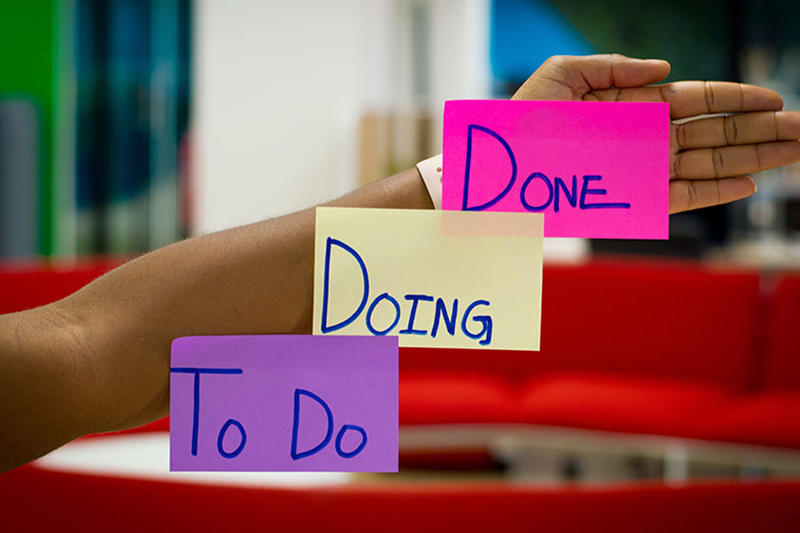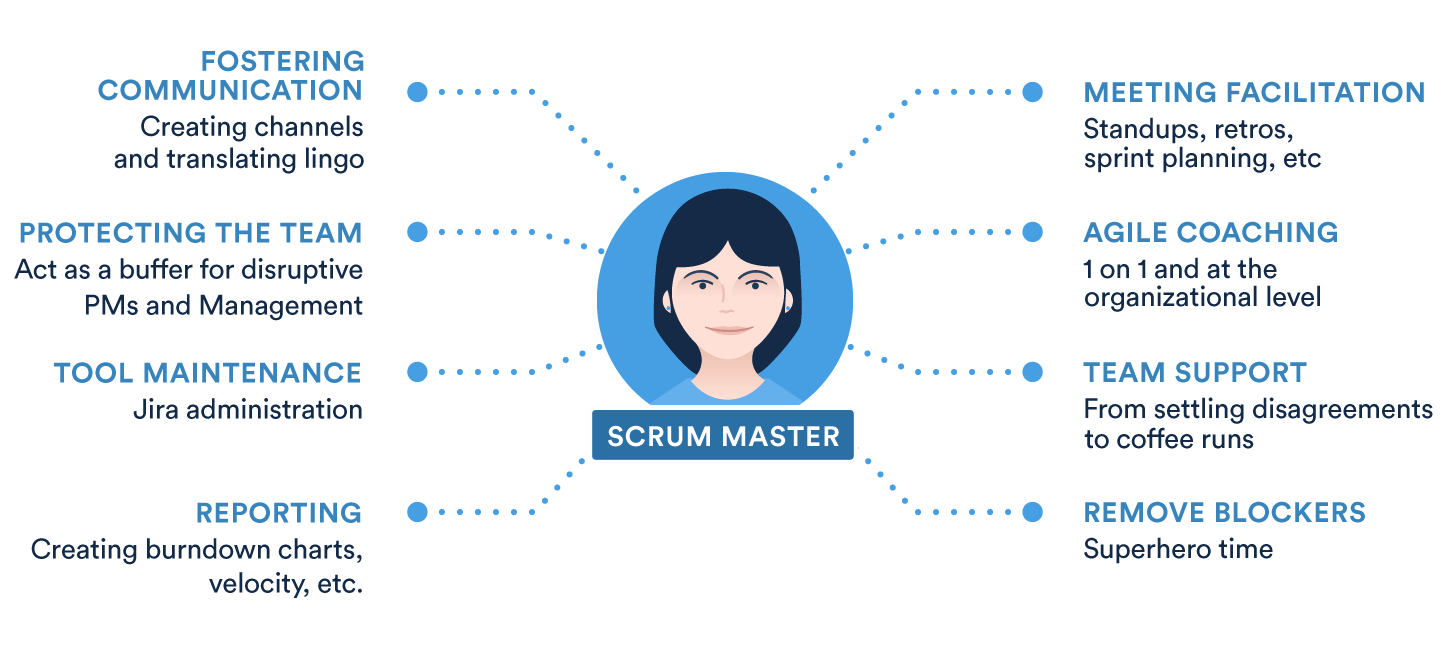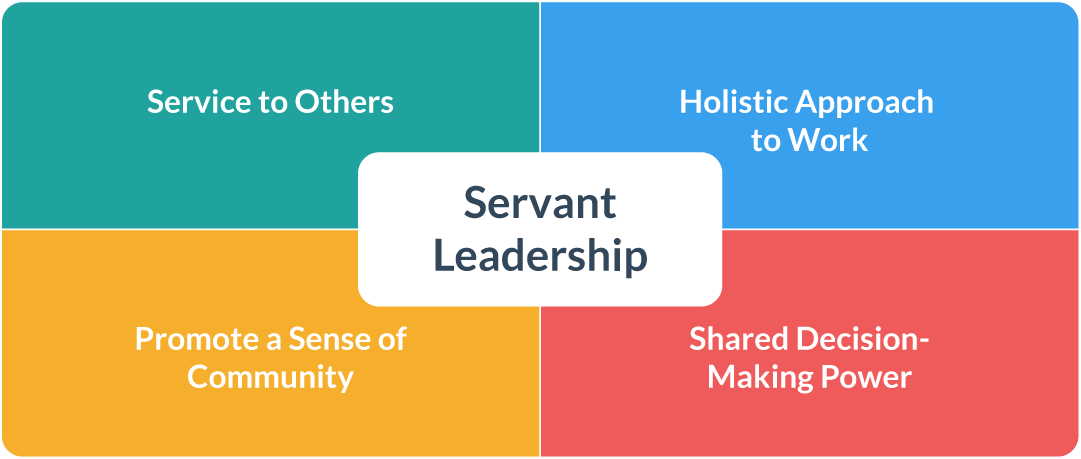
A considerable part of projects in the IT industry is project management. Many companies work with Agile methodology and hire SCRUM masters to help them create effective project plans. They also manage and identify risks that could occur in their projects. Apart from keeping the project within constraints, they must also keep track of the employees and ensure that everyone is working according to the plan.
Now, if you are new to the world of project management, there are many unfamiliar processes and terminology and numerous responsibilities you need to take on. To keep every single detail under control, project managers typically choose a project management methodology to follow and use. In this article, we will talk about Scrum, the most popular project management Agile methodology nowadays. More precisely, we will discuss what a Scrum Master is and how to become one, considering all requirements, information, and skills.
What does SCRUM master mean?
To understand Scrum, we must first discuss Agile. As we mentioned earlier, Scrum is a type of Agile methodology, and it's often called "Agile project management framework". Agile represents software development philosophies and methodologies whose goal is to evolve teams and find solutions through collaboration. Finally, this would result in more outstanding quality, value, and predictability. Scrum is a subset of Agile - more precisely, it is a specific methodology that helps implement Agile ideas into a project.

As the name suggests, a Scrum Master is someone who mastered the Scrum methodology and ensured that the Scrum framework is followed. The Scrum Master helps implement Scrum to the larger team. They are committed to agile practices and values. They should also be flexible and open to new ideas and opportunities for the team to improve their workflow. A Scrum Master works with individual team members to guide the team through the Scrum framework. With the help of their Scrum Master, each team member should successfully follow the clearly defined set of roles and responsibilities. As facilitators of Scrum, Scrum Masters act as coaches to their Scrum team. This role is quite important in every company since the good organisation of the team is sometimes crucial for retaining valuable employees.
What will a SCRUM master do?
The situation that most often occurs is that a team relies on the Scrum Master for the entirety of the process. So, Scrum Master can do everything, from lightweight roles such as scheduling to some more exhausting responsibilities. Here are some examples of typical Scrum Master responsibilities, although Scrum defines not all.
Standups
Facilitating daily standups, also known as "daily Scrum". This might not be needed every single day.
Iteration/sprint planning meetings
Protecting the team from lousy priority choices, ensuring that they don't over-commit to one thing. Creating sub-tasks and estimating the time needed to accomplish them.
Sprint reviews
Participating in quick meetings and providing feedback.

Retrospectives
Noting areas that need improvement in retrospective, so that action can be taken in future projects.
Board administration
Working as the administrator of the Scrum board, meaning that a Scrum Master's job is also to ensure that all tools and cards are working well and up to date.
One on one's
Meeting with team members and stakeholders individually when there is a need for such interactions. This is particularly important for new teams who prefer face-to-face meetings to standups. The Scrum Master decides which of the two is better for their team members. In addition, these meetings are used to iron out disagreements about work styles and the process itself.
Reporting
Providing regular analysis of planning tools and burndown charts to understand what gets built and at what speed.
Blockers
The Scrum Master needs to help the team eliminate and manage external and internal roadblocks. This also means constantly striving towards workflow improvement.
Busy work
We could name just about anything on this list, and it would be correct. Scrum Masters need to be comfortable with doing anything to help their team. Is there a problem with the computers? Do the desks need some moving around? Does the temperature in the office work for everyone? These are only some of the things you are expected to solve as a Scrum Master, and deep down, you should be okay with it. Even if it means grabbing some snacks or coffees if the team needs a boost, the Scrum Master does everything in their power to ensure the team's success.
Is SCRUM Master a manager?
The easiest way to answer this question is to say that a Scrum Master is a manager of the Scrum process, but not of people.
A project manager is the non-technical or non-agile counterpart of the Scrum Master. Both focus on the ways to get work done and solve work problems. Therefore, a company doesn't typically need both roles. Both are responsible for their teams and getting the project done, but their approaches are different. The Scrum Master helps the team from a team member or collaborator position. They help the team streamline and enhance the process to achieve set goals. The best Scrum teams are self-organizing, so they disapprove of a top-down management system.
On the other hand, a traditional project manager acts from a place of control, meaning they are in a more conventional manager role. Their job is to coordinate team communication, set and track milestones and timeframes, and report progress. We could say that a traditional project manager is more responsible for monitoring each team member's efficiency and contribution and managing every tiny detail of the project, from documentation to resource and budget management.

Can a SCRUM Master be a developer?
This is a question that commonly comes up in our industry, especially among people who are only starting to learn about the Scrum framework. The short answer is: "Technically, yes." Scrum doesn't oblige you to fulfil only one role. However, it's left to you to decide whether you could fulfil both a developer role and a Scrum Master role.
Although there is nothing wrong with that approach, you still need to find someone who has all the knowledge, skills, experience, and traits desired in a strong Scrum Master. So let's take a look at some potential difficulties that arise when a developer is put in a Scrum Master role.
The Scrum Master's impact is minimized.
The Scrum Master has a wide range of responsibilities, as they serve the product owner, the organization, and the developers. If a Scrum Master is merely a "Scrum enforcer", the impact of this role and the possible business benefits are diminished. This role requires someone who is dedicated to the job 100%. Otherwise, the business will likely suffer - employees, the company, and the employer.
Focusing more on building the product
The business nature of developers is to work on a project, and this can be very challenging when they step into the role of a Scrum Master. In this case, developers need to focus more on leadership and improving their Scrum skills and put aside their primary passion. You'd agree this doesn't sound too appealing.
Capacity planning
When a developer is also the Scrum Master, other developers need to reorganize and restructure their team to adjust to the lack of workforce. The Scrum Master developer can't possibly know how much time he would need to enable and support the Scrum team, remove obstacles or deal with other Scrum role obligations. Therefore, this situation often requires heavy planning and redistribution of knowledge, activities, and skills.
Confusion
Confusion is an important topic for developers new to the Scrum Master role. It would help if you respected the team's accountability while also being "the expert" of the Scrum framework and Agile philosophy. This requires a perfect balance between the two sides, and it's pretty challenging to accomplish.
Agile vs Scrum
As we mentioned, Scrum is a subset of Agile, a framework used to implement an Agile set of ideas and principles. So, Agile is a philosophy, and Scrum is a type of Agile methodology. In Agile, everything is delivered at once, at the end of the project. In Scrum, the project is broken down into small deliverables, and the progress is tracked from start to finish. Agile involves members from various cross-functional teams, while a Scrum team consists of specific roles. It's important to note that Scrum always means Agile, but Agile doesn't always imply Scrum. Different methodologies can take an Agile approach to project management.
Kanban vs Scrum
Kanban and Scrum are both frameworks for Agile methodologies. A lot of teams use both simultaneously. Kanban is all about visualizing work, maximizing efficiency, and limiting work in progress. Its main objective is to limit and solve bottlenecks and reduce the time needed to complete the project. Teams do this by using a kanban board.
In Kanban, change can happen anytime, while in Scrum, change isn't welcome during set intervals, also known as sprints. Scrum also has a set of roles, like product owner, development team, and Scrum Master. In general, Scrum is best for a dedicated and structured agile approach. The goal of Scrum teams is to ship working software through sprints, create learning loops and gather and integrate customer feedback. One of the biggest differences between Scrum and Kanban is that Scrum loves having a lot of smaller assignments, while with Kanban, the work is in a continuous flow.
Conclusion
If we needed to take one thing from this article, it would be this: If your company needs to improve project planning and organization, you need a Scrum Master. Every IT company works on significant projects with big customers and stakeholders. It's in everyone's best interest for the project to go as smoothly as possible. To achieve this, more and more companies look to find a Scrum Master and use their skills to their advantage. Individuals who want to become Scrum Masters can take a course in Project Management with Scrum and look for a job in that role specifically. As we saw from some examples, it's not a good idea to have a developer take on a function of a Scrum Master. The job of a Scrum Master can be pretty interesting if you lean towards the organization and well-structured systems.
Do you work in a company with a Scrum Master? What are the ways a Scrum Master can help your team, from your experience? Feel free to comment below.



